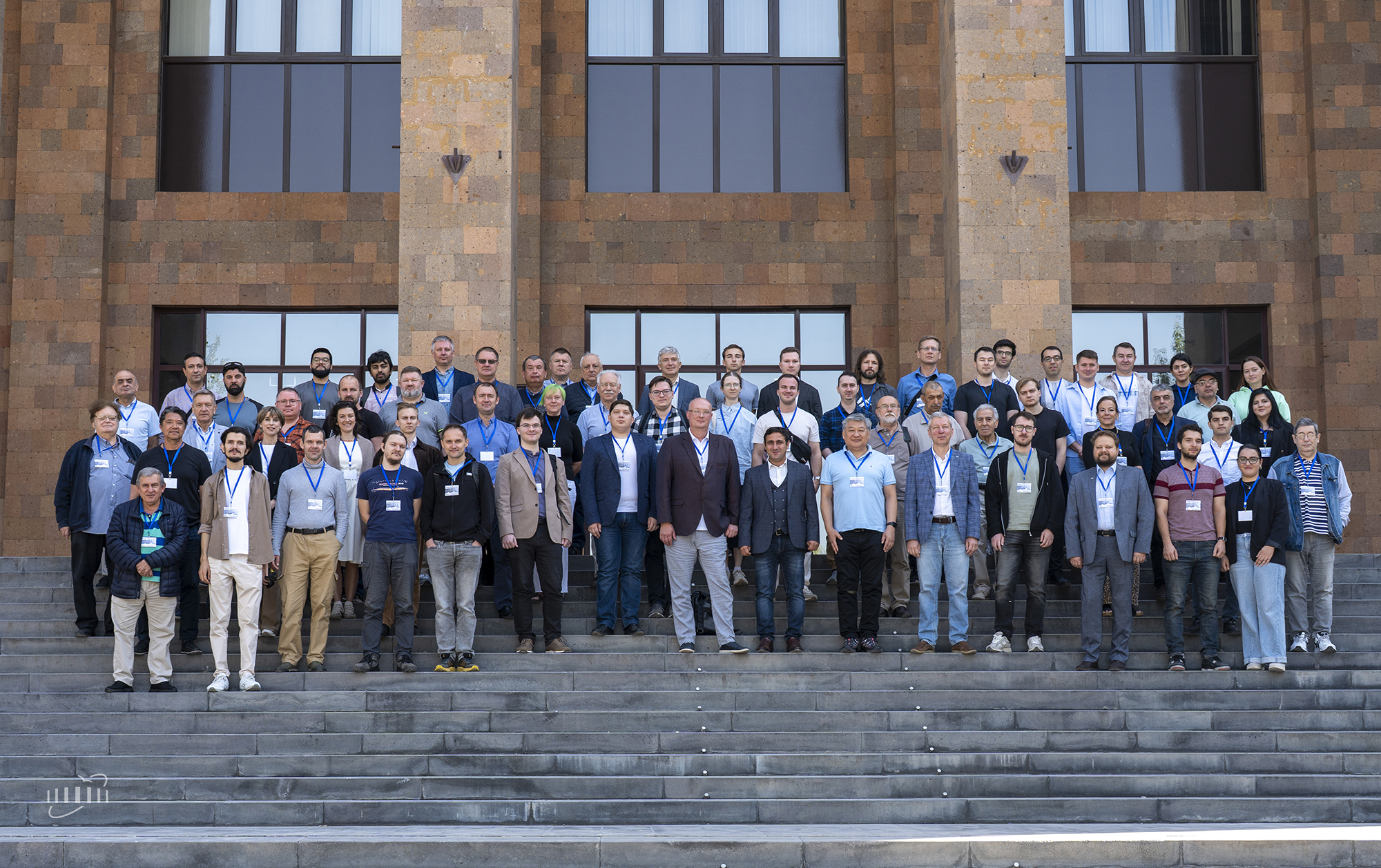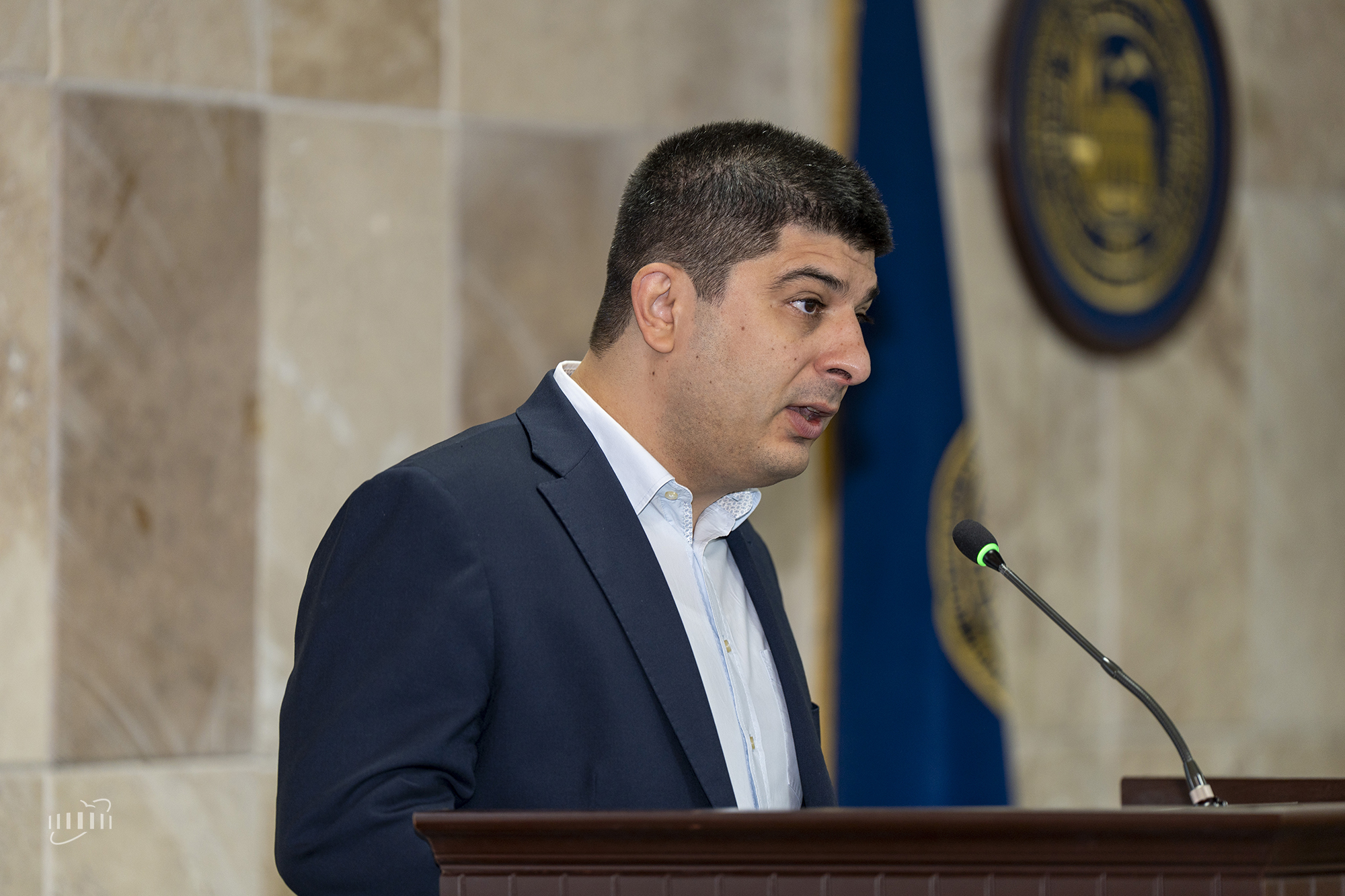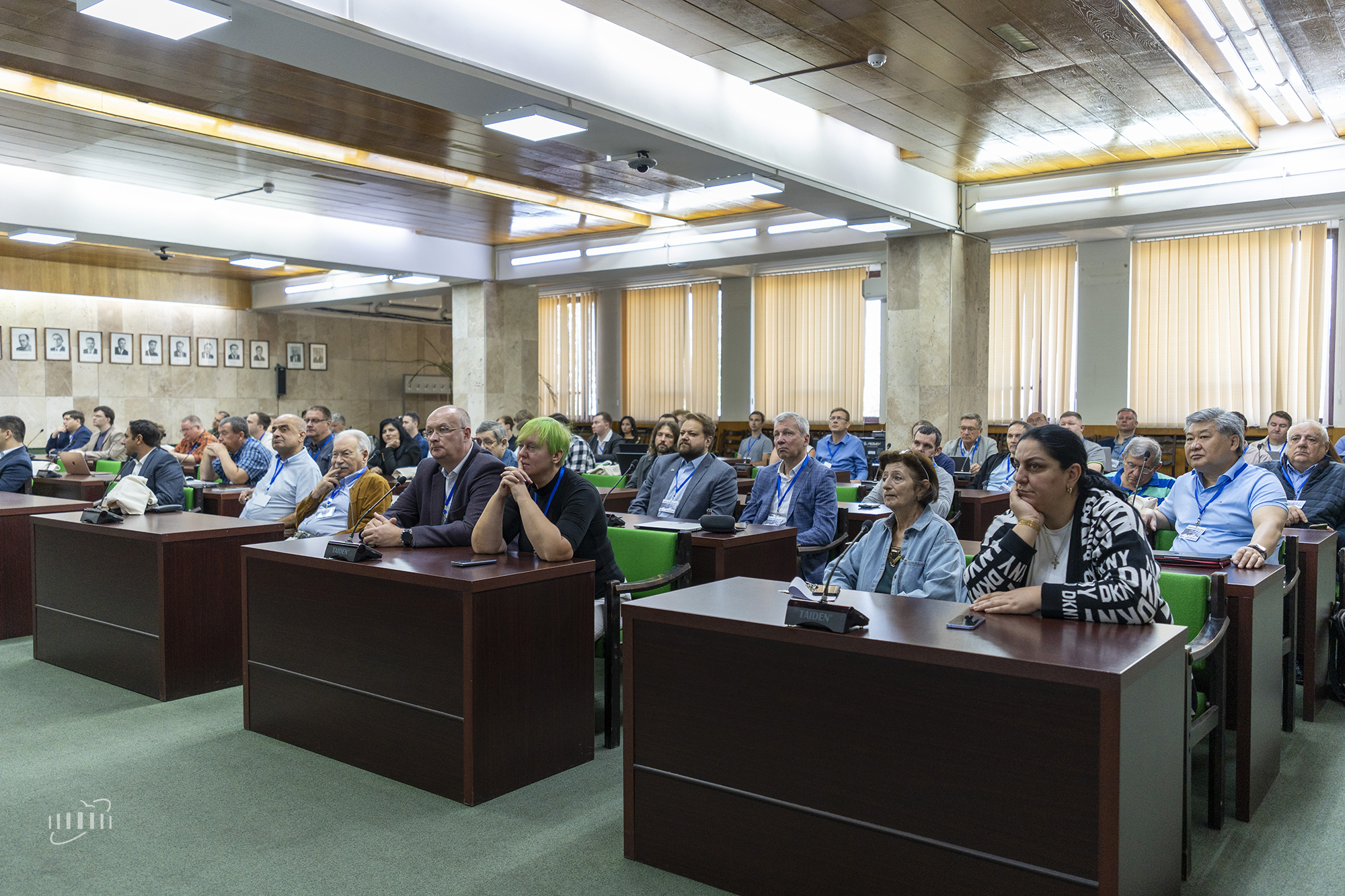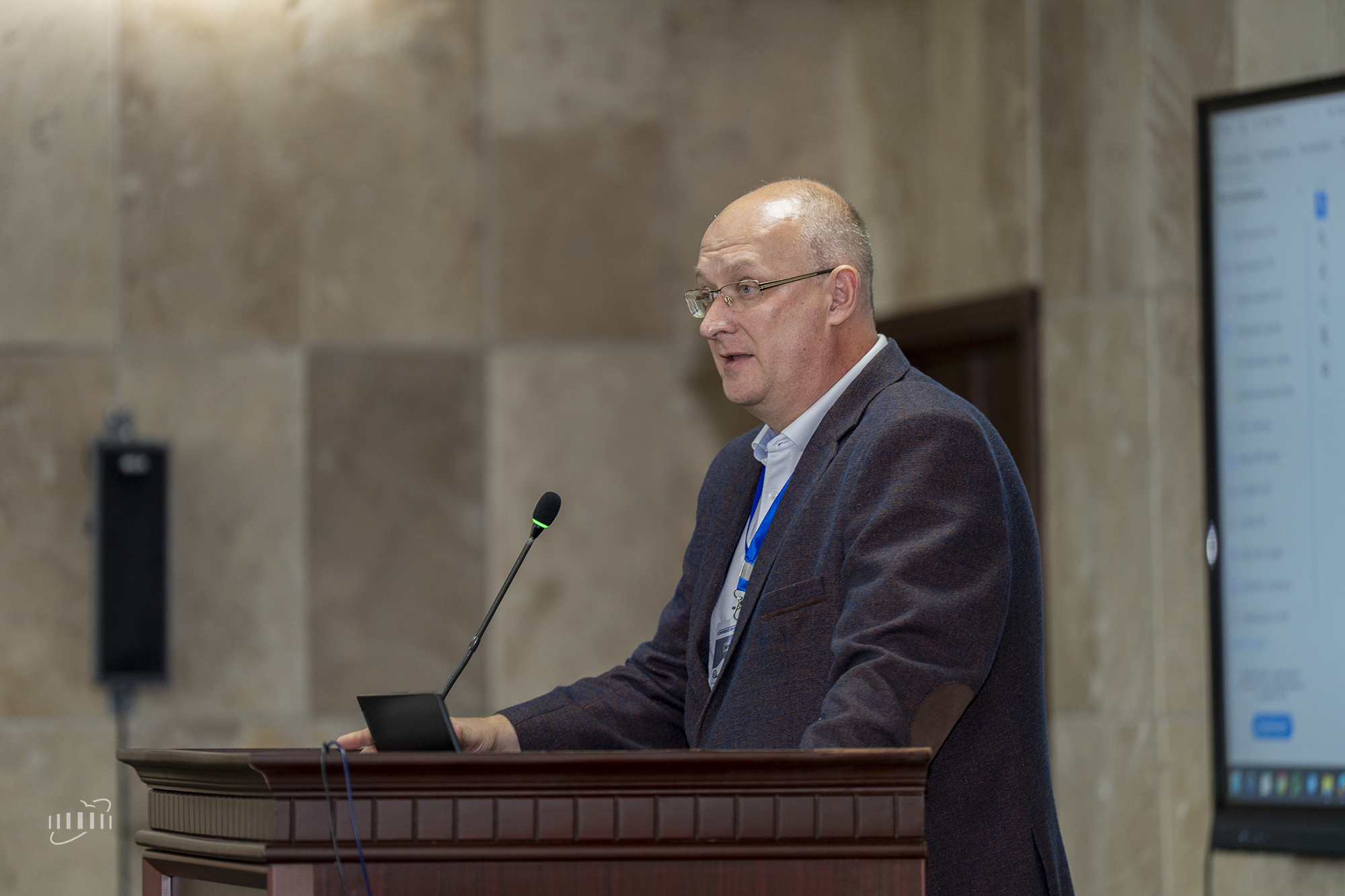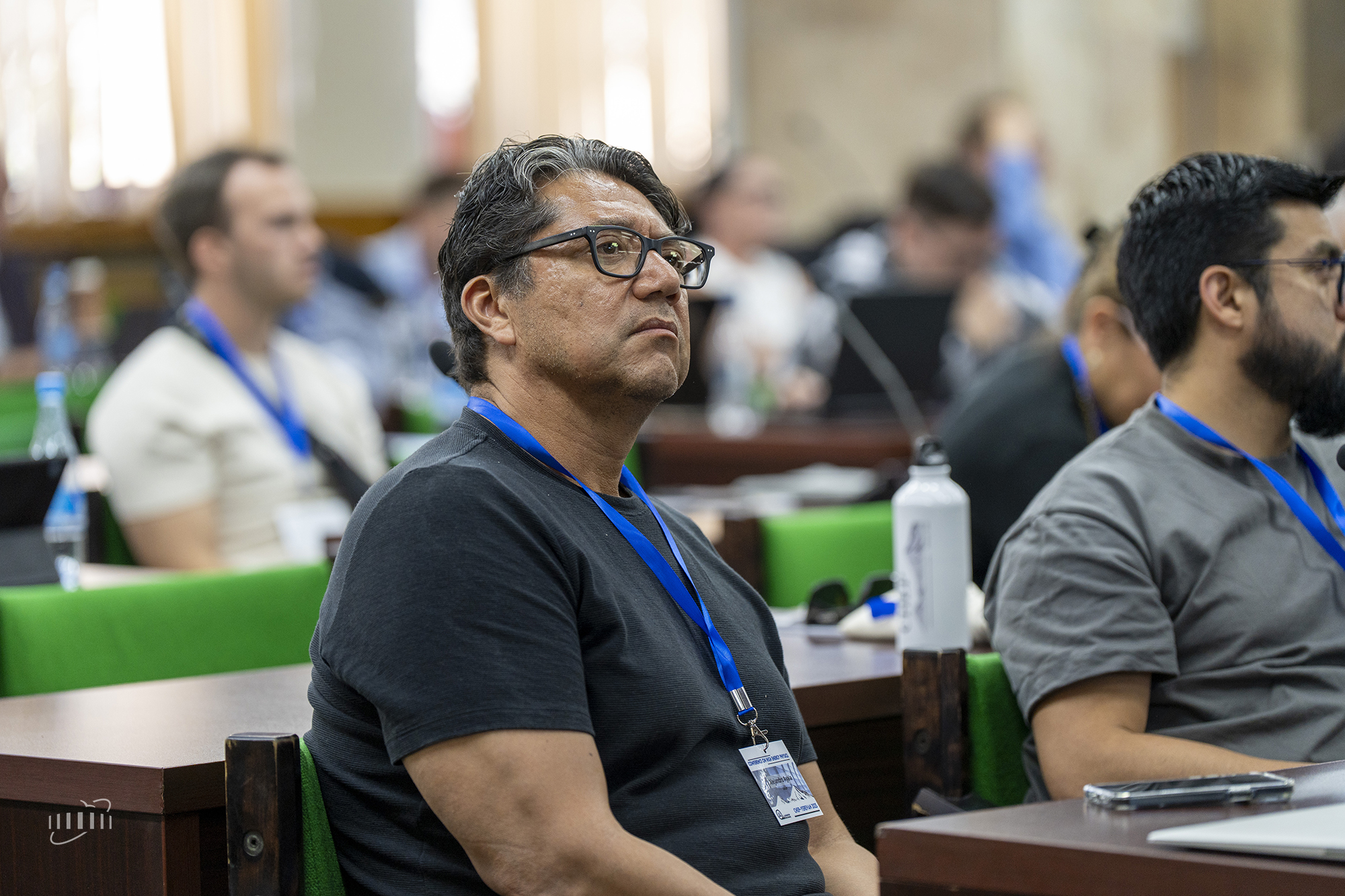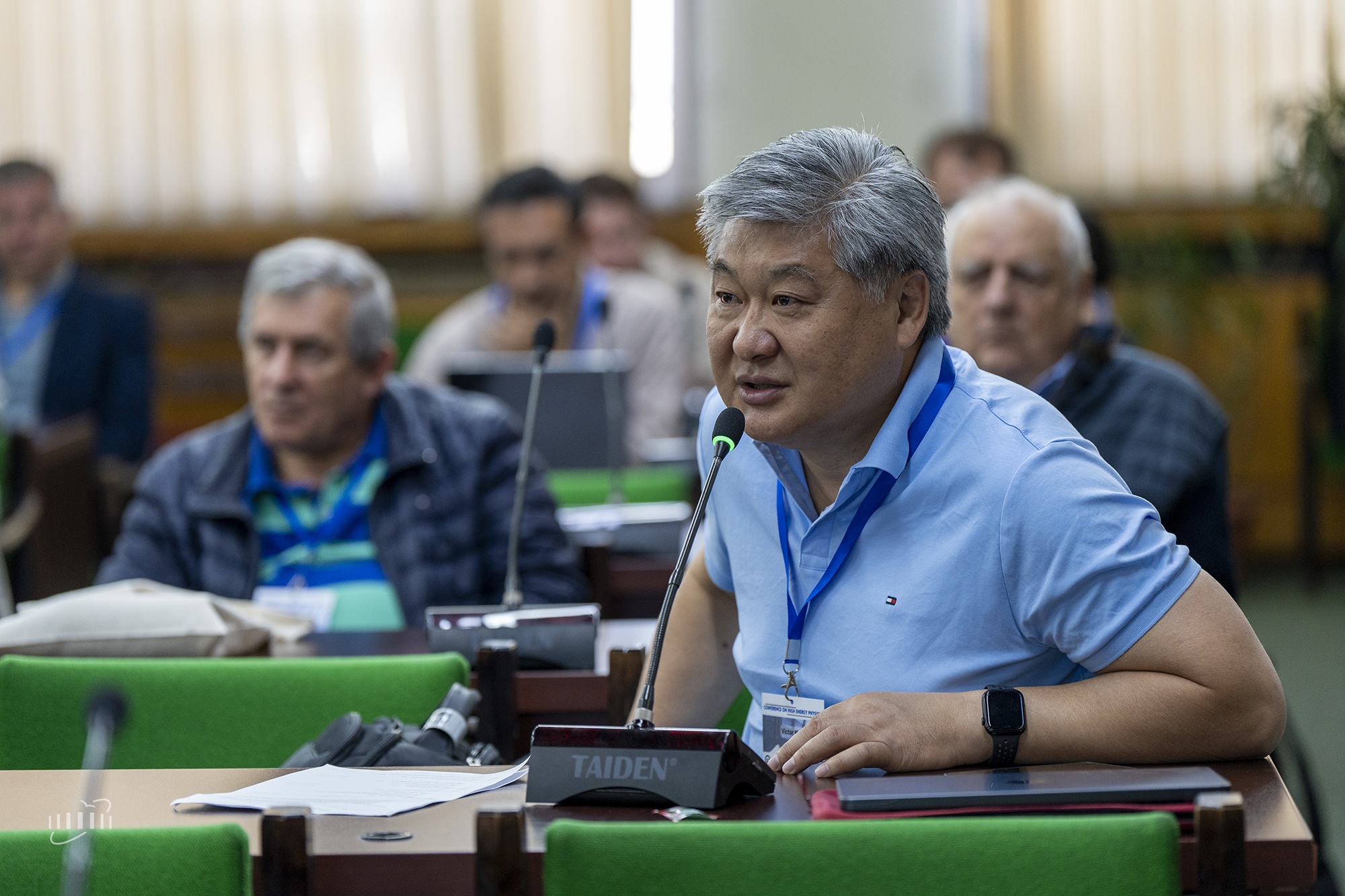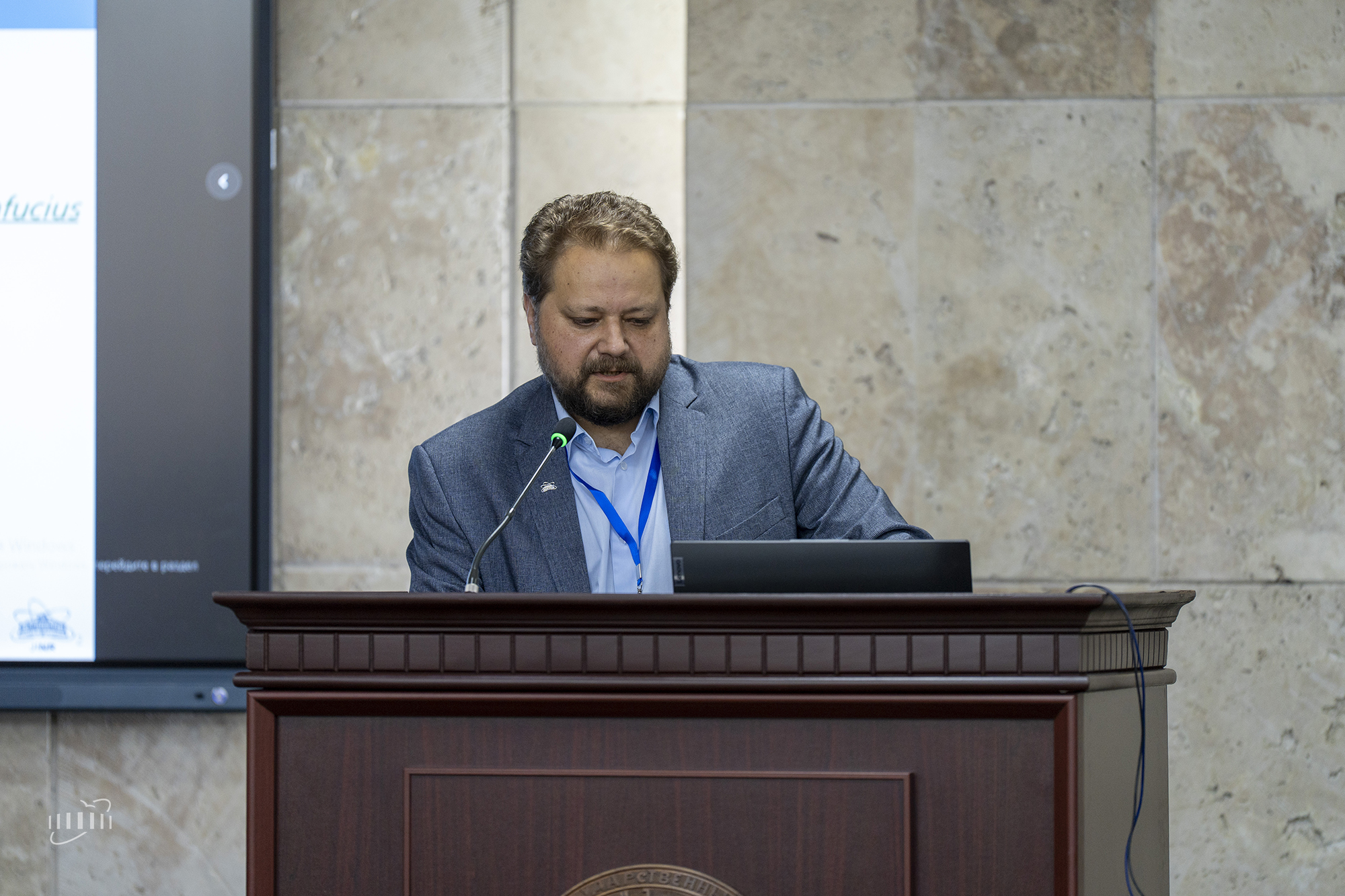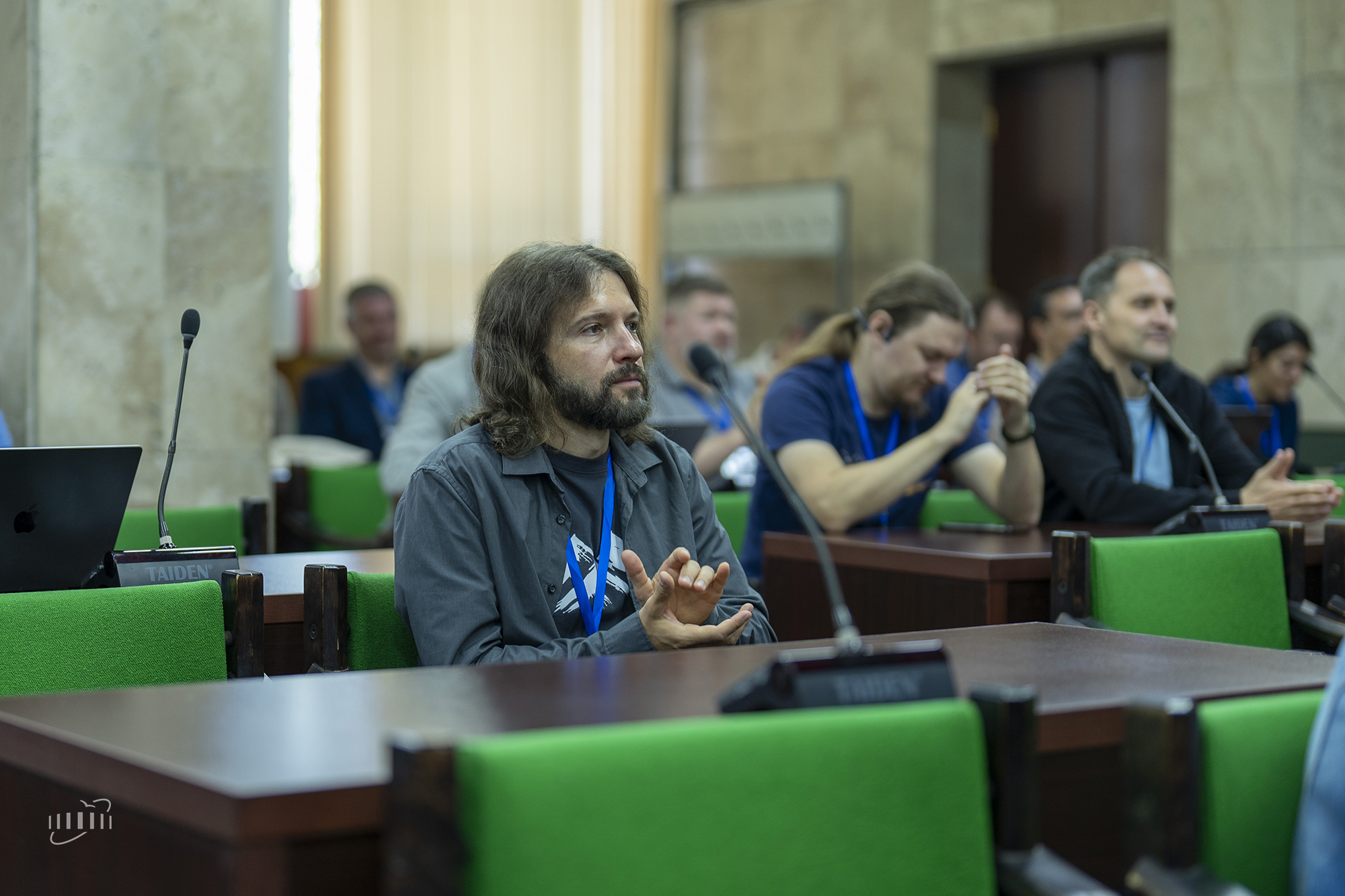JINR at Conference on High Energy Physics in Armenia
Conferences, 29 September 2025
On 29 September 2025, the international Conference on High Energy Physics (CHEP-Yerevan-2025) started in Yerevan. Among the participants are almost 80 researchers from scientific centres in Armenia, Belarus, Germany, India, Iran, Mexico, Russia, the USA, and Uzbekistan, as well as representatives of the Joint Institute for Nuclear Research and CERN. The organizers are the Alikhanyan National Science Laboratory (AANL), Yerevan State University (YSU), and JINR.
Welcome speeches were delivered by YSU Vice-Rector for Scientific Affairs Rafayel Barkhudaryan, AANL Director Gevorg Karyan, Director of the Meshcheryakov Laboratory of Information Technologies Sergei Shmatov, and an AANL leading researcher, Head of the YSU Department of Nuclear Physics and Astrophysics, Chair of the CHEP-Yerevan-2025 Organizing Committee Armen Tumasyan.
“It is a great honour for me to welcome all participants at Yerevan State University, a place with strong scientific traditions,” Rafayel Barkhudaryan said at the opening of the conference. “I wish for your discussions to be fruitful, for your ideas to be inspiring, and for close scientific contacts to be established through your professional communication. I hope that this conference will give a new impetus to our common efforts to expand the horizons of knowledge”.
Sergei Shmatov gave a speech on behalf of the JINR delegation, expressing gratitude to the organizers – Yerevan State University and the Alikhanyan National Science Laboratory – for the opportunity to take part in the biennial event, noting its important role in the development of international scientific cooperation. “This conference is an excellent platform for discussing the latest achievements in research and, most importantly, the future of high energy physics. Such events are especially important for young scientists and specialists,” the MLIT JINR Director said. He wished all the participants productive work, interesting new acquaintances, and the creation of strong research collaborations. “Today, our laboratory provides computing support to the largest international projects in high energy physics. Without the joint coordinated work of IT specialists and physicists, the implementation of such large-scale experiments is simply impossible,” Sergei Shmatov concluded.
The first day’s scientific programme started with a plenary talk by Director of the Bogoliubov Laboratory of Theoretical Physics Dmitry Kazakov reviewing Standard Model studies based on the latest results discussed at the 2025 European Conference on High Energy Physics (EPS-HEP 2025). In the final part of his presentation, he told the participants about Natural Science Review, a peer-reviewed journal published by the Joint Institute. According to the BLTP Director, its key advantages are prompt review and publication of materials, the absence of restrictions on the volume of articles, and the wide range of scientific fields covered – from fundamental physics to information technology and life sciences.
As part of a session devoted to the development of modern scientific infrastructure, the Acting Director of the Veksler and Baldin Laboratory of High Energy Physics Andrey Butenko made a presentation on the NICA Accelerator Complex and the programme of experiments using heavy ion beams.
In the afternoon, a number of representatives of the Joint Institute spoke at the Physics beyond the Standard Model session. MLIT Director Sergei Shmatov provided an overview of the latest results of the search for physics beyond the Standard Model in the CMS Experiment at the Large Hadron Collider (LHC). A VBLHEP Division Head Dmitry Peshekhonov talked about the latest research results of the NA64 Collaboration at CERN. A presentation by a BLTP senior researcher Maria Savina was devoted to the problems of dark matter in experiments at the LHC. A VBLHEP leading researcher Alexander Lanev spoke about studies with a pair of muons in the final state as part of the CMS Project.
The CHEP-Yerevan-2025 programme includes more than 50 scientific talks. Special attention will be paid to experiments at the LHC, SPS, NICA, KEK, CEBAF, and other facilities. The key topics for discussion will be:
- precise tests of the Standard Model,
- physics of the Higgs boson,
- physics of high energy muons,
- physics beyond the Standard Model,
- hadron spectroscopy,
- quantum chromodynamics (QCD) at high energies,
- heavy ion physics,
- spin physics,
- advanced analysis and computational tools in high energy physics.
The CHEP-Yerevan-2025 international conference will last five days, until 3 October. The event’s programme is available via the link. The working language is English.
